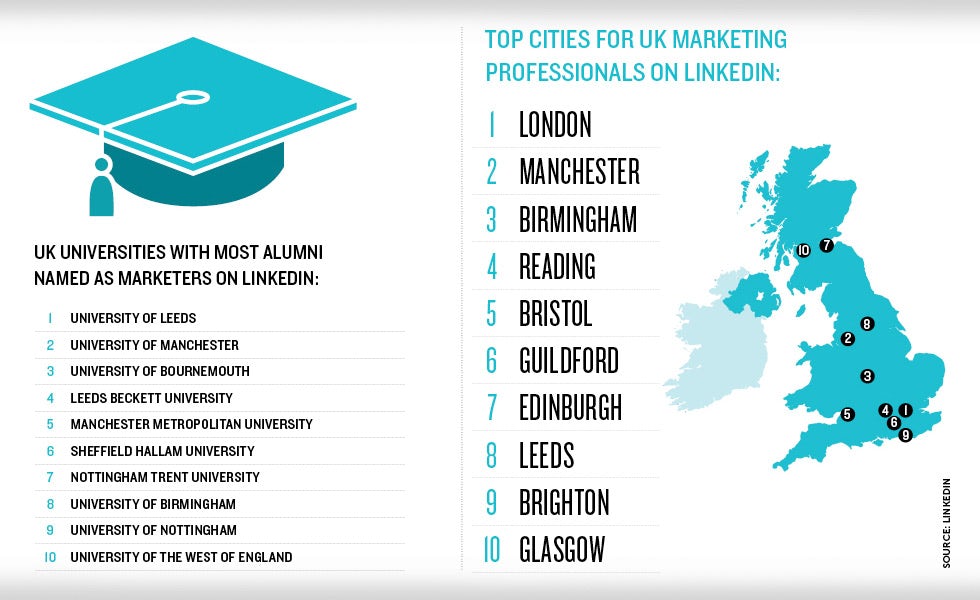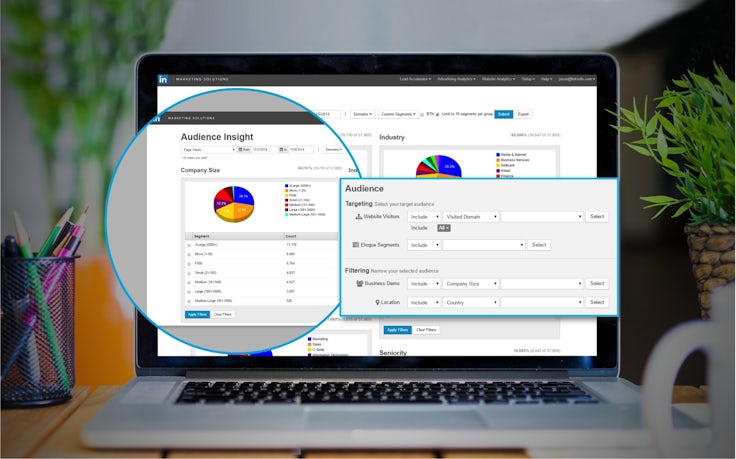How to sell yourself on LinkedIn
As LinkedIn hits 20 million members, data from the network reveals the most overused buzzwords and commonly claimed skills on marketers’ profiles.

Marketers are 2.5 times more engaged on LinkedIn than the average member of the online professional network, but like other users they fall into familiar traps when creating their public profiles, gravitating towards unoriginal buzzwords. According to LinkedIn head of global consumer communications Darain Faraz, the rule of thumb for selling yourself effectively online is: show, don’t tell.
LinkedIn’s analysis of UK marketers’ profiles on the site reveals that ‘creative’ is the most overused adjective in their personal descriptions, followed by ‘strategic’ and ‘motivated’. Faraz suggests that, rather than just using rhetoric to convince peers and prospective employers how passionate (4th on the buzzword list) they are about their track record (5th), marketers should outline their tangible achievements instead.
“When you say things like ‘I’m strategic’, ‘I’m dynamic’, ‘I’m creative’, that’s lovely but rather than saying it, show me how you are. We have tools on LinkedIn that allow you to turn it into more of a portfolio of your work rather than a two-dimensional CV, which some people see it as.”
He adds: “Show your personality and show your success. You can upload presentations, so if you have increased sales by X amount, tell us that rather than saying ‘I am a highly achieving sales person’.”
The skills marketers promote most often on their profiles, meanwhile, have a distinctly digital slant. While ‘marketing’ is predictably the most common, ‘social media’ and ‘social media marketing’ both make it into the top 10, at 2nd and 6th places, respectively. Faraz admits to being “surprised” at how high social media ranks on the list. Meanwhile, ‘digital marketing’ is the 8th most popular skill and ‘email marketing’ comes 10th.

Clearly, digital abilities are expected in any marketing job, but the prevalence of these attributes on people’s LinkedIn profiles indicates that simply laying claim to them without providing additional evidence will probably do little to differentiate users from other candidates.
As 12% of UK marketers on LinkedIn moved to a new job last year, being a competitive candidate in the jobs marketplace is a priority that never wanes. Many universities are even encouraging their students to craft their personal profiles before entering the world of work, according to Faraz.
“Universities are increasingly educating their students about the power of LinkedIn. Students remain one of our fastest-growing demographics on the site – to help them find an internship or graduate job in an increasingly competitive market, and to build their professional ‘brand’.”
Among the 10 institutions with the most alumni working in the marketing profession, Bournemouth University (3rd) and Leeds Beckett University (4th) are perhaps the most surprising presences. Bournemouth ranks 48th in the UK by total number of students, according to the Higher Education Statistics Agency, and Leeds Beckett 20th, suggesting their students are particularly conscious of a need to be on LinkedIn.
The marketing employers which are best represented on the site are public sector bodies. The BBC is the brand employing the highest number of marketers with profiles, while other top 10 brands include Asda, Boots, Harrods and British Gas. Central and local government are the two parent organisations accounting for most marketer profiles, with the major advertising holding companies also high on that list.
Faraz argues that for brands and organisations, the benefit of encouraging employees to be active on LinkedIn – in terms of portraying a happy and engaged workplace – should outweigh any danger of talented staff using it as a shop window to seek a move elsewhere.
“Your employees and peers are often the best ambassadors and advocates for the business, and probably in the best position to give those on the outside a really authentic view of what it is like to work at your company. Involving them in developing that story and encouraging them to share that can only be a good thing,” he says.
With newer sites such as Glassdoor enabling workers to leave anonymous reviews of their companies, this could be one way for organisations to enlist their employees’ help in actively positioning themselves as employer brands.








